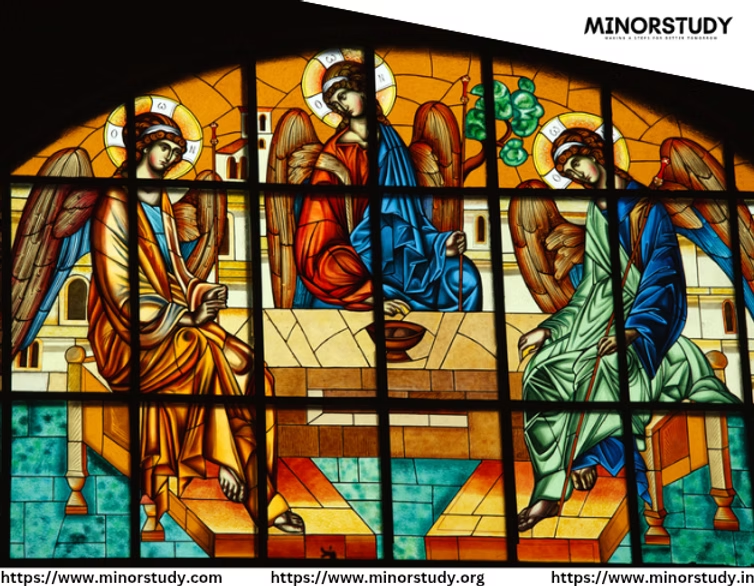🎁 Introduction: Why Orthodox Christmas Day Deserves More Attention
Orthodox Christmas Day: While much of the world celebrates Christmas on December 25th, millions of Orthodox Christians observe Orthodox Christmas Day on January 7th. Rooted deeply in ancient Julian calendar traditions, this day is celebrated by Eastern Orthodox Churches with immense spiritual devotion, ritual purity, and a profound sense of community and humility.
- 🎁 Introduction: Why Orthodox Christmas Day Deserves More Attention
- 📜 History of Orthodox Christmas Day
- 🧭 Timeline of Orthodox Christmas
- 🌟 Key Facts About Orthodox Christmas Day
- 🎯 Significance of Orthodox Christmas Day
- 🌐 Importance in Our Daily Life
- 🙋 Frequently Asked Questions (FAQs)
- 🕯️ Observance & Rituals
- 🎉 Wishing on Orthodox Christmas Day
- 📌 Important Points to Remember
- 🧠 Conclusion: A Celebration of Light in Simplicity
It’s more than just a festive day — it’s a soulful celebration of the birth of Jesus Christ, anchored in liturgical heritage and family values. In today’s fast-paced world, Orthodox Christmas serves as a gentle reminder of simplicity, holiness, and the power of silent reflection.
📜 History of Orthodox Christmas Day
Orthodox Christmas Day is celebrated on January 7th by followers of the Eastern Orthodox Church, which includes churches such as:
The Russian Orthodox Church
The Serbian Orthodox Church
The Greek Orthodox Church (some branches)
The Coptic Orthodox Church of Egypt
The Ethiopian Orthodox Tewahedo Church
The Georgian and Ukrainian Orthodox Churches
Why January 7?
This date corresponds to December 25 in the Julian calendar, which lags behind the Gregorian calendar (used in the West) by 13 days. When Pope Gregory XIII introduced the Gregorian calendar in 1582 to correct calendar drift, many Orthodox churches retained the Julian calendar for liturgical purposes — hence the shift in Christmas celebration.
🧭 Timeline of Orthodox Christmas
| Year | Event |
|---|---|
| 325 CE | Council of Nicaea affirms December 25 as the date of Christ’s birth. |
| 1054 CE | The Great Schism divides Eastern (Orthodox) and Western (Catholic) churches. |
| 1582 CE | Gregorian calendar adopted by Western Europe; Orthodox Churches retain Julian calendar. |
| 20th century | Orthodox Christmas continues on January 7, observed by millions globally. |
| Today | Over 200 million Orthodox Christians continue the January 7 tradition. |
🌟 Key Facts About Orthodox Christmas Day
Date: January 7 (corresponds to December 25 Julian)
Observed by: Eastern Orthodox Christians around the world
Fasting: Many Orthodox Christians observe a 40-day Nativity Fast before Christmas
Divine Liturgy: Midnight Mass and morning services are the highlight
Traditional Foods: Kutia (wheat berry pudding), borscht, fish, and other fasting-friendly dishes
No Santa Claus: Focus remains strictly on the religious meaning of Christ’s birth
Decorations: Modest; icons and candles are used instead of flamboyant lights
Emphasis: Simplicity, prayer, family, and spiritual rebirth
Greeting: “Christ is born!” with the response “Glorify Him!”
🎯 Significance of Orthodox Christmas Day
Orthodox Christmas Day represents hope, renewal, humility, and spiritual truth. Its significance extends beyond religious belief:
1. Spiritual Awakening
Encourages believers to reflect on the divine nature of Christ and His purpose on Earth.
Invites contemplation on sacrifice, love, and mercy.
2. Cultural Identity
Preserves the distinct traditions of Eastern Christianity, such as icon veneration, liturgical chant, and unique rituals.
Strengthens communal bonds and ethnic heritage (especially among Slavic, Balkan, African, and Middle Eastern Orthodox Christians).
3. Counter to Commercialism
While Western Christmas has become highly commercialized, Orthodox Christmas retains a minimalist and prayer-centric focus.
4. Unity in Faith
Though divided by calendar, the core essence of Christmas — the birth of Jesus Christ — is a shared belief among all Christians.
🌐 Importance in Our Daily Life
Even if one doesn’t personally observe Orthodox Christmas, the values it promotes can influence everyday life positively:
Patience: The long Nativity Fast teaches endurance and control.
Mindfulness: Prayers, chants, and liturgies slow life’s pace and invite inner stillness.
Gratitude: A reminder to value relationships, simplicity, and the intangible gifts of life.
Cultural appreciation: Understanding different faith practices promotes global empathy and tolerance.
🙋 Frequently Asked Questions (FAQs)
Q1: Who celebrates Orthodox Christmas?
A: Primarily Eastern Orthodox Christians in countries like Russia, Serbia, Ethiopia, Egypt, Georgia, Ukraine, and diaspora communities worldwide.
Q2: Why is it celebrated on January 7th?
A: Because many Orthodox Churches still use the Julian calendar, which is 13 days behind the Gregorian calendar.
Q3: Is Orthodox Christmas different from Western Christmas?
A: Yes, in terms of calendar, rituals, and emphasis. Orthodox Christmas is more liturgical and spiritual, less commercial.
Q4: Are there special foods or customs?
A: Yes! Foods like kutia, fish dishes, and meatless feasts are common. Also, icon processions, candles, carol-singing, and fasting are key elements.
Q5: What are traditional greetings?
A: “Christ is born!” is answered with “Glorify Him!” or variations like “Christos Razhdaetsya!” in Russian.
🕯️ Observance & Rituals
Orthodox Christmas Day is observed with solemnity and sacredness. Common rituals include:
Nativity Fast: 40 days of dietary and spiritual preparation.
Vigil & Midnight Mass: Special church services rich with hymns, incense, and icon veneration.
Breaking the Fast: Families gather to share modest but symbolic meals.
Carol Singing (Kolyadki): Especially in Slavic cultures, children and adults sing traditional hymns house to house.
Almsgiving: Giving to the poor or church is encouraged.
Home Blessings: Priests may visit homes for blessings.
🎉 Wishing on Orthodox Christmas Day
Spread warmth with meaningful greetings that honor the occasion:
“May the divine light of Christ fill your home with peace, love, and spiritual joy. Christ is born – Glorify Him!”
Other heartfelt wishes:
🎄 “Wishing you a holy and humble Orthodox Christmas filled with grace.”
🌟 “As the star of Bethlehem once guided wise men, may it guide your soul to truth and peace.”
🙏 “Let the birth of Christ be a new beginning for love, faith, and kindness in your life.”
📌 Important Points to Remember
January 7 is Christmas Day for millions, not just December 25.
The date difference is due to calendar variations, not a difference in belief.
Orthodox Christmas emphasizes faith, not festivity.
Traditions are steeped in spiritual discipline, not commercial celebration.
It’s a time of unity, humility, and gratitude for the gift of Christ.
🧠 Conclusion: A Celebration of Light in Simplicity
Orthodox Christmas Day might feel “late” to some, but to those who celebrate it, it is perfectly timed — nestled in winter’s calm, far from the rush of consumerism. It invites the world to slow down, listen, and truly feel the divine message of Christmas.
While decorations fade and gifts are unwrapped, the essence of Christ’s birth — hope, light, salvation — continues to shine in Orthodox homes and churches on January 7th.
In a world yearning for authenticity and spiritual reconnection, Orthodox Christmas reminds us that sometimes, the most powerful celebrations are the quietest.








